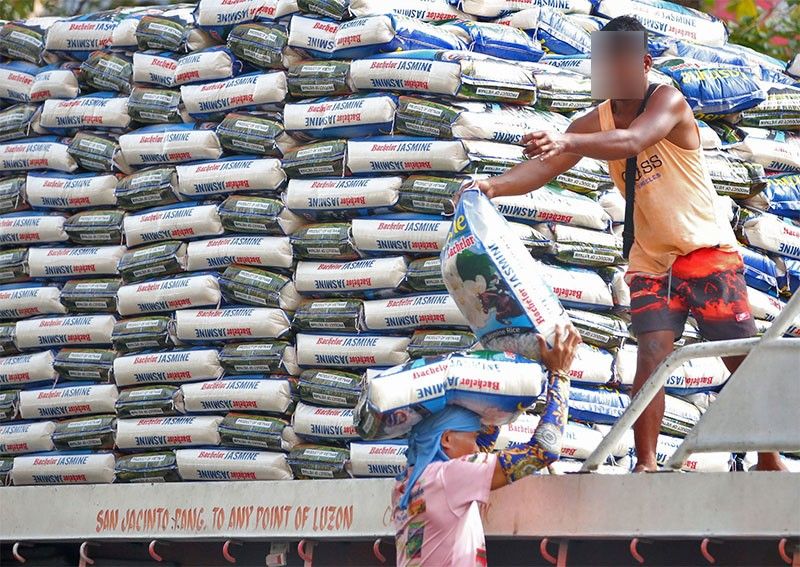FEF bucks proposal to restore NFA power

MANILA, Philippines — The Foundation for Economic Freedom (FEF) is opposing the proposal to bring back the power of the National Food Authority (NFA) to import and sell rice to consumers, saying this would reverse the gains from the reforms in the country’s rice policy.
The group expressed concern over the pace at which Congress wants to amend the provisions of the Rice Tariffication Law (RTL), particularly the proposal to restore the power of the NFA to import rice and engage in rice retail to “buy high” from the palay farmers and “sell low” to the consumers.
“This proposal will reverse all the beneficial reforms in the rice policy framework achieved by the RTL and will reinstate, for the wrong reason – the short-term adverse external events not related to the RTL, the previous framework, which was historically prone to governance vulnerabilities and fiscal unsustainability,” FEF said in a statement.
The group consists of top economists, former and present Cabinet secretaries and undersecretaries, leading figures in the academe, opinion-makers and prominent members in the business and finance community seeking to advance economic and political liberty, good governance, secure and well-defined property rights, market-oriented reforms and consumer protection. It believes that the RTL is the most significant reform in the country’s rice policy landscape since the 1970s.
This, as the RTL has enabled the country to become fully compliant with its international commitment to the World Trade Organization, while easing the over P170 billion debt NFA incurred due to its “buy high and sell low” strategy.
In addition, the FEF said the law has eliminated rent-seeking activities along the rice value chain from its procurement down to the logistics involved in handling and marketing rice and helped tame rice inflation for the period of 2019 until 2022 when international rice prices were stable.
Through the RTL’s implementation, the country was also able to generate around P80 billion in tariff duties to support improved productivity of small rice farmers.
Earlier this month, the House of Representatives committee on agriculture and food approved a substitute bill that would restore the power of the NFA to buy and sell rice to consumers.
The approval came after President Marcos expressed his intention to certify as urgent the bill amending RTL.
According to the FEF, the government’s move to amend the RTL is due to the perception the law has not arrested the increasing rice prices.
The group, however, said the soaring rice prices are due to factors beyond the control of the RTL such as the Ukraine-Russia conflict, the export ban of non-basmati rice by India, which supplies around 40 percent of total global rice export and the intensifying conflict in the Middle East.
“If the total rice supply deficit can be addressed in the short term by increased local production, we see no reason why restoring the power of NFA to import rice and to engage in rice retail needs to be permanently embedded in the law to tame the soaring rice prices,” FEF said.
Should the El Niño lead to a serious supply shortage, the group said other policy instruments could be used.
It cited a proposal it made earlier to temporarily reduce the import duty on rice to 10 percent from 35 to lower the landed cost of imported rice and exert downward pressure to wholesale and retail prices.
Should there be an urgent justification for importing rice, the FEF said the implementing rules and regulations of the RTL provides that the Philippine International Trading Corp., an attached agency of the Department of Trade and Industry (DTI), can import the country’s rice requirements.
“This is a better option because the public perception of the Department of Agriculture is that it should promote the interest of the cultivators rather than the consumers. DTI is legally mandated to perform the latter function,” FEF said.
It also said NFA should ramp up procurement of palay from our local producers to build the “buffer stock” for emergency situations, which RTL stipulates to be its integral function.
- Latest
- Trending























